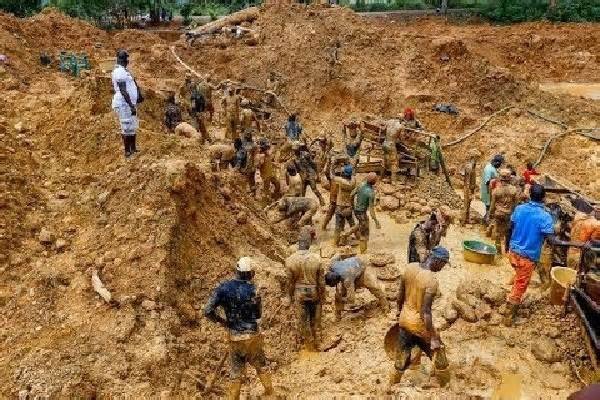Partner & Head, Energy & Natural Resources, Tax, Regulatory & People Services, KPMG, Ayo Salami, has said the mining sector has the capacity to contribute 8 per cent Gross Domestic Product to the nation’s economy on annual basis, adding Nigerian counterparts such as Ghana, South Africa, and get more in Zambia, with 12 per cent.
He stated this during the KPMG 2024 Breakfast seminar with the theme: “Mining-The Future Frontier for Nigeria’s Economic Diversification”, in Lagos.
He also said Nigeria has 0.12 trillion reserves in terms of value of mineral deposits, and in terms of tonnage.
According to Salami in terms of the dominance of minerals and mineral deposits, Nigeria ranks number 22, with values of minerals about 1.12 trillion, over a billion US dollars adding Algeria and South Africa are just above Nigeria on the list with 19th and 11th positions respectively.
Summarising what has happened to the Nigeria’s mining sector in the last couple of years, focusing on 2022 data Salami said Nigeria is struggling to achieve a 0.77% contribution to GDP from this sector. This sector, he said actually has the potential to jumpstart the development of the country.
According to him, as of 2023, the growth, the contribution to GDP was just 0.77 per cent. Putting it in context, the Partner said Nigeria must actually get close to the current government and probably the greatest of them.
He explained eight years ago, when the roadmap was put together by the ministry, the contribution was less than 0.3 per cent, so over a period of six, seven years, it sort of doubled, even though it’s still risky. According to him, the country should be doing in the ranges of 8 per cent adding this is not where we want to be as a country and therefore should take something serious going forward.
Meanwhile, the group had launched what it called the mining brief. The mining brief Salami explained is a publication of KPMG Nigeria, which seeks to put out there certain information about the mining sector in terms of regulatory framework, the tax incentives, the various types of mineral rights that can actually be applied for and obtain in Nigeria, and it hosts a lot of other information that investors need to know about the mining space in Nigeria.
”So, it’s a document that I would advise that every investor, both foreign and Nigerian, obtain to have insight, first-hand insight into that sector in Nigeria and all those matters that they need to be aware of when they make an investment in that sector”, he explained.
Salami said the benefits of the mining brief on the sector and on the nation’s economy is that you have some information free of charge, things that you might have to pay for and you go to some of the advisors in Nigeria to seek that information.
He said the information is available free of charge, and secondly, it’s like an eye-opener for those investors regarding matters that they probably are not aware of before they make an investment in Nigeria and the matters that ordinarily their lawyers, their accountants would have to tell them at a fee, they get them for free through the mining brief, he added.
Salami said the programme was organized this one, to sensitize the various stakeholders about the potential that the mining sector holds for jump-starting the development and diversification of the Nigerian economy and the fact that we have so many minerals that the government can leverage to achieve that purpose.
The second reason was to also sensitize the public about the connection and the linkage between energies, transitioning, and mining, Again, to also bring together both public and private sector operators to share ideas and see how they can, together, work to see how they can achieve the mandate of the president, one of the eight presidential priorities, which is diversifying the economy and generating forex for the country.








